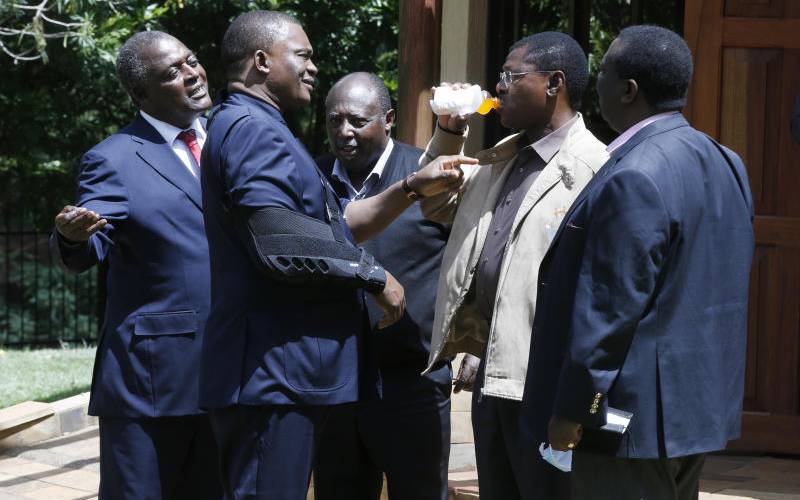
Ford Kenya leader Moses Wetang'ula has been promised the position of National Assembly Speaker should Deputy President William Ruto be elected president in the August election. If things work that way, Wetangula will be taking over from current Speaker Justin Muturi.
It isn’t the first time fate has Muturi and Wetangula in the same alliance – for better or for worse. One day – Saturday, May 16, 1981 – when law students at the University of Nairobi, the two narrowly escaped lynching by fellow students who accused them of being “traitors”.